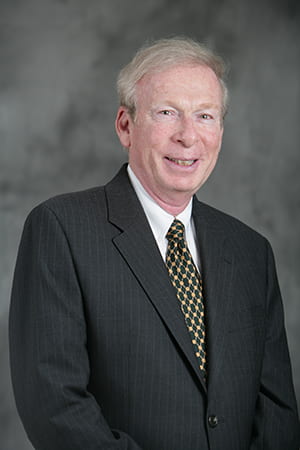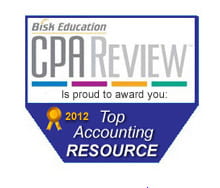10 Business Books For Your Summer Reading List
This is the University of Maryland’s Robert H.Smith School of Business “12th Annual Top-10 Summer Reading List for Business Leaders” for 2015. My review of Lawrence A. Cunningham’s Berkshire Beyond Buffett: The Enduring Value of Values is included below (#7).
 |
1. Pitch Perfect: How to Say It Right the First Time, Every Time By Bill McGowan with Alisa Bowman 2014Kathryn Bartol, professor of management and organization, says, “McGowan is an award-winning news correspondent turned media/communications coach. He offers sound and engaging advice on how to be ‘pitch-perfect’—i.e., more effective at communicating across a variety of common career-related circumstances. Readers will find many helpful hints aligned with his seven principles of persuasion.” |
 |
2. The Bet: Paul Ehrlich, Julian Simon, and Our Gamble over Earth’s Future By Paul Sabin 2014“The Bet describes the opposing views of Paul Ehrlich, who focused on the limits of natural resources and economic growth, and Julian Simon, who felt that market forces and innovation would overcome any potential shortages,” says Curt Grimm, professor and Charles A. Taff Chair of Economics and Strategy. “The two agreed to a wager in 1980 regarding whether the prices of a set of natural resources would go up or down over the next decade. Julian, our colleague here at the Smith School from 1983 until his passing in 1998, won the bet. Subsequent innovations such as oil and natural gas fracking continue to support his views.” |
 |
3. Are You Fully Charged?: The 3 Keys to Energizing Your Work and Life By Tom Rath 2015“Tom Rath, author of numerous bestsellers, including StrengthsFinder 2.0, has done it again,” says Joyce Russell, vice dean. “He has written two books in the past two years that really are excellent if you want to take control of your life and become healthier and have more energy. In his 2015 book, Are You Fully Charged?: The 3 Keys to Energizing Your Work and Life, he describes three aspects (meaning, social interactions and energy) that we all need to enhance, and provides suggestions for how to do that. In 2013, he published Eat, Move, Sleep: How small choices lead to big changes, which describes in practical ways how to track the way you eat, move and sleep in real time in order to enhance your overall health and well-being. Once again, as in his other books, his advice is based on sound research and offers us steps we can take starting tomorrow. The premise of both of these books is that the daily actions you take are what define your health, wellness, energy and engagement. Having meaning in our lives, creating positive interactions with others and bolstering our own physical and mental health are goals we all generally aspire to, so I see both of his books as having value to any audience.” |
 |
4. The Emperor of All Maladies: A Biography of Cancer By Siddhartha Mukherjee 2011“The Emperor of All Maladies: A Biography of Cancer is fascinating account of the societal and technical evolution a cure for cancer,” says Ritu Agarwal, professor and Dean’s Chair of Information Systems. “The book provides a detailed and rich account of the progress of science and the research enterprise – and how social forces, government policy and pure serendipity affect the search for truth.” |
 |
5. Work Rules!: Insights from Inside Google That Will Transform How You Live and Lead By Laszlo Bock 2015“Work Rules! by Laszlo Bock, senior vice president of Google’s People Operations, is a must-read business book for any leader who wants to build bring out the best in their employees and build successful high performing organization,” says Mark Wellman, clinical professor of management and organization. “It is an evidence-based practical guide for effective approaches to recruiting, motivating, leading, training, assessing and compensating people. The book should be mandatory reading for every student that desires to be a leader or entrepreneur.” |
 |
6. The Righteous Mind: Why Good People Are Divided by Politics and Religion By Jonathan Haidt 2013“It is not often that a book changes one’s mind about how to view right and wrong, and why good people disagree about what is right,” says Brent Goldfarb, associate professor of management and organization. “This book is the first reasonable explanation I have found of why the capitalist/progressive right/left dialogue is so acrimonious. Whether you align left, right or somewhere in between, do not read this book if you wish to remain smug in your own positions.” |
 |
7. Berkshire Beyond Buffett: The Enduring Value of Values By Lawrence A. Cunningham 2014“Many books have been written about Warren Buffett and Berkshire Hathaway, but Berkshire Beyond Buffett is one of the best,” says David Kass, clinical professor of finance. “The central theme of this book is that the culture instilled within Berkshire, along with its outstanding financial performance over the past 50 years under the leadership of Mr. Buffett, should continue long after the octogenarian (age 84) is no longer the CEO. The narrative provided by the author provides a historical perspective of the evolution of Berkshire from a company largely dependent on its insurance businesses and its portfolio of publicly traded securities, to a conglomerate comprised of 80 businesses across numerous industries, the largest of which today are its railroad, energy and manufacturing operations, along with insurance. The unique management structure within Berkshire, providing substantial autonomy to each of its subsidiaries, has resulted in owners of previously privately held businesses remaining in place as managers after they sell their firms to Berkshire. Indeed, with only 25 people in Berkshire’s home office in Omaha, there are very limited resources available to intervene in these companies, which collectively have about 400,000 employees. This book is highly recommended for anyone wishing to gain insight into both the management and investment skills of the world’s greatest investor, Warren Buffett. |
 |
8. The New One Minute Manager By Ken Blanchard and Johnson Spencer 2015Frank Alt, associate professor of management science and statistics, recommends the The New One Minute Manager, a new edition based on the timeless business classic: “In this rapidly changing world, is an effective manager one who focuses on results or people? A young man’s search for an effective manager finally leads him to one in a nearby town, and the young man discovers the manager’s three very practical secrets: one-minute goals, one-minute praisings and one-minute re-directs. The theme of these secrets is captured in the manager’s screensaver statement: ‘People who feel good about themselves produce good results.’ This book is a must re-read for everyone and the lessons therein are applicable both inside and outside the workplace.” |
 |
9. Social Physics: How Good Ideas Spread-The Lessons from a New Science by Alex “Sandy” Pentland 2014“Sandy Pentland takes a look at the new world of understanding how we can model social behavior and understand social changes through big data,” says Bill Rand, assistant professor of marketing. “It is these tools that will enable a new wave of predictive analytics that will help businesses to better understand changes in their consumer base. Sandy also discusses in detail both the benefits and potential pitfalls of the big data movement, and calls for a ‘New Deal on Data’ that guarantees to consumers that their data will be used responsibly.” |
 |
10. More Than You Know: Finding Financial Wisdom in Unconventional Places By Michael J. Mauboussin 2007Susan White, clinical professor of finance, says, “Michael Mauboussin is a financial writer for financial advisers. His book More Than You Know looks at the strategies of super-investors like Warren Buffett, along with the diverse strategies of top poker players, ant colonies and Tupperware salespeople. While aimed at professional investors, the book looks at investing philosophies, the psychology behind investing and how scientific methods can apply to investing. His book is a multidisciplinary approach to finance, bringing in biology, physics, economics and the arts. Mauboussin says that looking at the stock market as a complex adaptive system made him rethink everything he learned about finance in the past. Academics like me tend to focus more narrowly, concentrating on our own specialties. Mauboussin’s goal is to encourage investors to take a new perspective on finance by using the multidisciplinary tools he explains in his series of essays.” |
Bonus Books by Smith School Faculty
- Dancing Elephants and Leaping Jaguars by Sunil Mithas (2014)
- An Introduction to Agent-Based Modeling by William Rand (2015)
- A Risk Professional’s Survival Guide by Cliff Rossi (2014)
The Washington Post published these book reviews on June 28, 2015.



